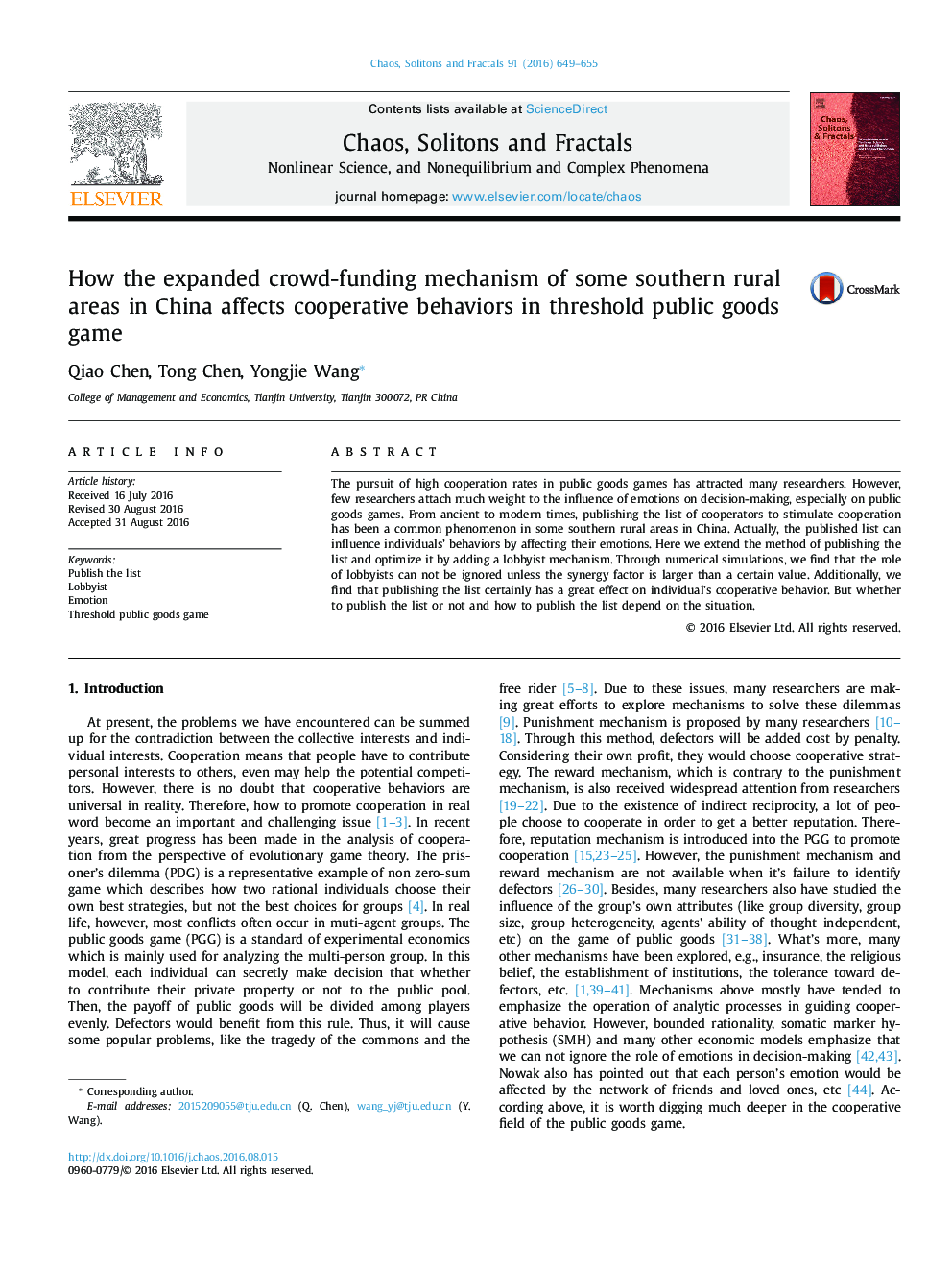| Article ID | Journal | Published Year | Pages | File Type |
|---|---|---|---|---|
| 8254698 | Chaos, Solitons & Fractals | 2016 | 7 Pages |
Abstract
The pursuit of high cooperation rates in public goods games has attracted many researchers. However, few researchers attach much weight to the influence of emotions on decision-making, especially on public goods games. From ancient to modern times, publishing the list of cooperators to stimulate cooperation has been a common phenomenon in some southern rural areas in China. Actually, the published list can influence individuals' behaviors by affecting their emotions. Here we extend the method of publishing the list and optimize it by adding a lobbyist mechanism. Through numerical simulations, we find that the role of lobbyists can not be ignored unless the synergy factor is larger than a certain value. Additionally, we find that publishing the list certainly has a great effect on individual's cooperative behavior. But whether to publish the list or not and how to publish the list depend on the situation.
Keywords
Related Topics
Physical Sciences and Engineering
Physics and Astronomy
Statistical and Nonlinear Physics
Authors
Chen Qiao, Chen Tong, Wang Yongjie,
